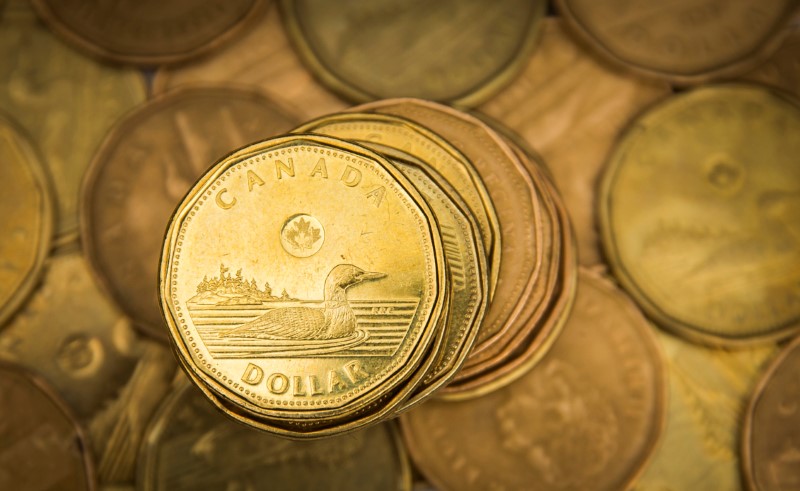* Loonie strengthens 0.8 pct vs greenback
* Inflation rate rises to 3.0 percent in July
* Price of U.S. oil increases 0.7 percent
* Canada-U.S. 2-year spread narrows by 3.1 basis points
By Fergal Smith
OTTAWA, Aug 17 (Reuters) - The Canadian dollar strengthened against its U.S. counterpart on Friday after data showing a surge in domestic inflation triggered increased bets on another Bank of Canada interest rate hike as soon as September.
Canada's annual inflation rate surged to 3.0 percent in July, its highest in nearly seven years, versus 2.5 percent the previous month as energy prices climbed. Economists had forecast 2.5 percent annual inflation. 3:14 p.m. EDT (1914 GMT), the Canadian dollar CAD=D4 was trading 0.8 percent higher at C$1.3058 to the greenback, or 76.58 U.S. cents. The currency traded in a range of C$1.3053 to C$1.3168.
"With that size of a shock, (the Canadian dollar) probably should have moved more," said Greg Anderson, global head of foreign exchange strategy at BMO Capital Markets in New York. "This really does raise the possibility of the Bank of Canada raising rates in September again."
The central bank raised its benchmark interest rate in July for the fourth time in a year, to 1.50 percent. Chances of another hike next month climbed to about 25 percent from less than 20 percent on Thursday, the overnight index swaps market showed. BOCWATCH
"Today's CPI figures are yet another data point that supports the Bank of Canada's assessment that the economy is operating close to capacity and further rate hikes will be needed," said Ranko Berich, head of market analysis at Monex Canada and Monex Europe.
The CPI data came a day after a report that showed Canadian factory sales grew by 1.1 percent in June from May. loonie had lost ground against the U.S. dollar .DXY earlier in the week due to volatility in emerging market currencies. But it was on track to end the week 0.6 percent higher.
Mexico's economy minister, Ildefonso Guajardo, said he hopes to conclude by the middle of next week outstanding bilateral issues with the United States surrounding the renegotiation of the North American Free Trade Agreement. Canada is also part of the NAFTA trade pact. crude oil futures CLc1 settled 0.7 percent higher. Oil is one of Canada's major exports.
Canadian government bond prices were lower across much of a flatter yield curve, with the two-year CA2YT=RR down 4.5 Canadian cents to yield 2.103 percent.
The gap between Canada's 2-year yield and its U.S. counterpart narrowed by 3.1 basis points to a spread of 51.0 basis points in favor of the U.S. bond.
